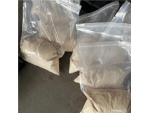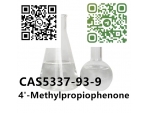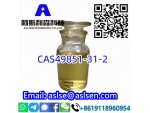
TOP Supplier TOP Purity Local Anesthetic Lidocaine hcl powder Lidocaine hydrochloride chemical supplier
50 ლარი
დეტალური ინფორმაცია
ქვემო ქართლი
მარნეული
კომენტარი
VIP განცხადებები

Free sample 2785346-75-8 Etonitazepyne
10 ლარი

[email protected] order bromazolam -bromazolam cas 71368-80-4- buy bromazolam canada -bromazolam canada legal -Buy bromazolam pill- order flubromazolam
2700 ლარი

Best Quality 4-Methylpropiophenone CAS 5337-93-9
1 ლარი

Top quality PMK ethyl glycidate new PMK powder Cas 49851-31-2 high yield
10 ლარი

ADB-BINACA adbb 5cladba 4FADB JWH-018 5FADB 5F-MDMB-2201 Whatsapp:+852 95488094
250000 ლარი
Welcome to contact me :
Whatsapp / Telegram : +8617702722109
Skype / Signal : +8617702722109
Email : [email protected]
Lidocaine hydrochloride, also known as lidocaine HCl, is the hydrochloride salt form of lidocaine. It is a commonly used local anesthetic and antiarrhythmic medication. Here are some important points about lidocaine hydrochloride:
Local Anesthetic: Lidocaine hydrochloride works by blocking nerve signals in the area where it is applied, providing temporary numbness and pain relief. It is frequently used for local anesthesia during medical procedures such as dental work, minor surgeries, and dermatological procedures.
Antiarrhythmic Medication: Lidocaine hydrochloride is also administered intravenously as an antiarrhythmic medication. It helps stabilize irregular heart rhythms and is commonly used in emergency situations or during cardiac procedures.
Hydrochloride Salt: Lidocaine hydrochloride is the hydrochloride salt form of lidocaine. The addition of hydrochloride increases the solubility of lidocaine, making it more suitable for certain formulations and applications.
Duration of Action: The duration of action of lidocaine hydrochloride as a local anesthetic varies depending on the dosage, the specific area being treated, and the method of administration. Typically, it provides temporary anesthesia for about one to two hours. As an antiarrhythmic medication, the effects may vary depending on the individual and the specific cardiac condition being treated.
Precautions and Safety: Lidocaine hydrochloride should be used under the supervision of a healthcare professional. It is important to follow the recommended dosage and administration guidelines to minimize the risk of side effects. Allergic reactions to lidocaine hydrochloride are possible, and individuals with a known allergy to lidocaine or related local anesthetics should avoid its use. Lidocaine hydrochloride should not be applied to broken or irritated skin.
Side Effects: Common side effects of lidocaine hydrochloride may include temporary numbness, tingling, or a burning sensation at the application site. Allergic reactions, such as skin rashes, itching, swelling, or difficulty breathing, can also occur, although they are rare. Systemic side effects are uncommon when lidocaine hydrochloride is used appropriately.
Professional Administration: Lidocaine hydrochloride can be administered topically, injected, or given intravenously, depending on the intended use and the healthcare professional's judgment. The specific method of administration and dosage will be determined based on the individual's condition and the procedure being performed.
Lidocaine hydrochloride is available in various formulations, including creams, ointments, gels, solutions, and injectable forms. Some formulations may be available over the counter, while others require a prescription.
It is important to use lidocaine hydrochloride as directed by a healthcare professional and to consult with them for personalized advice, considering your specific situation and any concerns you may have.